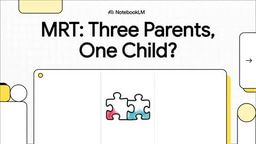Surrogacy Singapore - Pathways to Legalization
Published in Social Sciences, General & Internal Medicine, and Pharmacy & Pharmacology
Please refer to the following articles:
Should Singapore legalize surrogacy to better protect all parties involved?
Please also see the slide presentation video:
Introduction
Surrogacy in Singapore is a complex and highly debated topic, characterized by significant ethical, social, and legal challenges. These challenges arise from the current local ban on surrogacy procedures within Singapore and the increasing trend of Singaporeans seeking these services abroad. It must be noted that although surrogacy is prohibited locally, there are no laws specifically banning Singaporean residents from pursuing surrogacy abroad. Because there is no comprehensive local legal framework to address such overseas arrangements, this can lead to potential complications. There are significant legal and practical challenges for those seeking to establish formal parental rights and Singapore citizenship for a child born through overseas surrogacy.
Key points about surrogacy in Singapore:
- Not exactly illegal, but not permitted: While not explicitly prohibited by law, the government does not allow surrogacy within Singapore.
- Healthcare regulations: Surrogacy procedures are banned in all local medical facilities, whether in the public or private healthcare sector. Singaporean IVF clinics and doctors face stiff punishments if they engage in surrogacy procedures, such as having their licenses suspended or revoked.
- No specific ban on overseas surrogacy arrangements: While surrogacy is prohibited domestically, Singaporeans can pursue surrogacy arrangements in other countries. Many Singaporeans seek surrogacy arrangements abroad, such as in the USA, Malaysia, Laos, Georgia, and Ukraine, but this comes with its own set of challenges.
- Lack of legal framework for overseas surrogacy: There is no established legal framework to handle the complexities that can arise from surrogacy arrangements made outside Singapore. These arrangements can be complex, involving legal and ethical considerations related to the child's legal status, citizenship, and the rights of the surrogate mother.
- Potential for difficulties and complications: Individuals engaging in overseas surrogacy may face challenges when trying to establish parental rights and responsibilities in Singapore, as well as obtaining Singapore citizenship for their surrogate child.
- Review efforts: The Ministry of Social and Family Development is reviewing its position on surrogacy, including the possibility of future legalization. This may lead to future changes in the legal landscape surrounding surrogacy.
- Considerations for Singaporeans pursuing surrogacy abroad: Singaporeans seeking surrogacy options will need to explore various countries with permissive legal frameworks for surrogacy arrangements. It is crucial to carefully consider the legal and ethical implications of pursuing surrogacy abroad, including the potential challenges in establishing parental rights and the well-being of the child.
Here are the key ethical, legal, and social challenges with legalizing surrogacy in Singapore:
1. Ethical Challenges:
1.1 Exploitation and Commercialization
Unregulated surrogacy poses risks, particularly to economically disadvantaged women from poorer countries, who may be unduly induced by monetary reimbursement. While current Singaporean society may find commercialized surrogacy morally repugnant, there is a debate on whether surrogate mothers should receive substantial financial remuneration or be altruistically motivated. There's also a risk of illicit under-the-table payments if altruistic surrogacy is mandated.
1.2 Welfare of the Child
Ethical concerns arise regarding children born with congenital deformities, including questions of abortion, abandonment, and the commissioning parents' refusal to accept the child. The "Baby Gammy" case, where a child with Down syndrome was abandoned, highlights these issues. It's proposed that surrogacy contracts should legally bind recipient couples to accept the child, even with deformities.
1.3 Lifestyle Choice Versus Medical Necessity
There are some concerns that upon legalizing surrogacy, this could become a "selfish and convenient lifestyle choice" rather than strictly a medical necessity, potentially encouraging women to delay marriage and motherhood. This is viewed as anathema to Singapore's promoted 'Asian family values'.
1.4 Medical Practices and Professional Ethics
Questions arise about the ethical justification of subjecting healthy and fertile surrogates to expensive, invasive procedures like IVF and ICSI when simpler, cheaper alternatives like Intrauterine Insemination (IUI) might suffice, if the recipient mother is not utilizing her own eggs in the surrogacy arrangement. There is also concern about "shopping for quality or designer genes" if third-party donor eggs are unnecessarily used, which could lead to accusations of treating babies as commodities. To prevent conflicts of interest, it's proposed that medical professionals should be strictly limited to providing fertility treatment and not be involved in the recruitment, counseling, or reimbursement of surrogates.
1.5 Conflicting Values
Surrogacy raises "difficult questions about ethics, the value of life and the role of medical technology". Unlike Western discourses emphasizing individual rights, reproduction issues in Singapore, similar to Hong Kong, are framed more as an obligation to carry on the family line, influenced by Confucian ideas of placing "society above self". This leads to a generally muted discourse about individual reproductive rights.
2. Legal Challenges:
2.1 Prohibition and Lack of Legal Framework
Surrogacy procedures are currently prohibited in Singapore, but there are no laws banning Singaporean residents from engaging in surrogacy arrangements abroad. To date, there is no comprehensive legal framework to address overseas surrogacy arrangements involving Singaporean residents, leading to inconsistencies and injustice. The Ministry of Social and Family Development is still reviewing its position.
2.2 Transnational Complications
Singaporeans seeking surrogacy overseas face significant legal hurdles in applying for adoption, residency, and citizenship for their children. Transnational arrangements can result in cross-border legal tussles, exploitation, and even stateless orphans. Differences in legal recognition of surrogacy contracts across countries can lead to complex and prolonged custody disputes.
2.3 Legal Parenthood
Under Singaporean law, similar to the UK and Hong Kong, the woman who gives birth is generally considered the legal and natural mother. While the Status of Children (Assisted Reproduction Technology) Act (SCARTA) addresses parenthood for children born through ART, it was not intended to address the broader question of surrogacy, leaving legal parenthood for surrogate-born children unsettled. In the landmark UKM case, a genetic link was suggested as a factor in assessing parenthood, contrasting with California's "parenthood by intent" concept.
2.4 Enforceability of Agreements
Unlike California, where surrogacy arrangements are enforceable, those in the UK and Hong Kong are generally not enforceable if parties change their minds. This unenforceability contributes to Singaporean commissioning parents seeking services abroad. Agreements regarding congenital deformities cannot be legally binding to abort the fetus due to human rights considerations.
2.5 Regulation of Payment
While commercial surrogacy is prohibited in the UK and Hong Kong, specific reimbursements for expenses are permitted. In Singapore, the High Court has sanctioned payments made for overseas surrogacy for adoption if the intent is genuine, indicating a nuanced approach.
2.6 Access and Eligibility
Current regulations in Singapore explicitly limit access to fertility treatments to married couples. If surrogacy were permitted, similar restrictions to married couples, possibly requiring the use of their own gametes, could align with Singapore's emphasis on genetic affinity and procreation as an extension of marriage.
3. Social Challenges:
3.1 Demographic Pressures
Singapore faces declining fertility rates and later marriages, prompting consideration of assisted reproductive treatments like surrogacy as a potential solution, although its impact on overall population growth is likely small.
3.2 Public and Religious Objections
Surrogacy sparks considerable interest and controversy among the general public, with strong objections from various local religious groups.
3.3 Impact of Transnational Cases
High-profile cases, such as Cambodia's temporary ban on surrogacy arrangements or the "Baby Gammy" case in Thailand, highlight the social and legal risks faced by Singaporean couples engaging in overseas surrogacy, and can even sour diplomatic relations.
3.4 Socio-economic Disparity
There is an equality debate regarding the socio-economic divide between those who can afford to seek surrogacy services overseas and those who cannot.
3.5 Cultural Values
Singapore's conservative societal values, heavily influenced by Confucian ideas, prioritize communitarian interests over individual self-focused concerns. This also means it's "very unlikely" that single or gay/lesbian couples would be permitted to utilize gestational surrogates if legalized. Additionally, in a conservative Asian society, there are hardly any local couples willing to adopt a child with disabilities.
3.6. Surrogate Well-being
Concerns exist regarding the emotional trauma for surrogates who give up their newborn infants, leading to potential legal disputes. Proposals suggest restricting surrogates to parous married women with stable family relationships who are Singaporean citizens or permanent residents (with exceptions for close relatives) to mitigate these risks and avoid offending socio-cultural and religious sensitivities of foreign countries.





Please sign in or register for FREE
If you are a registered user on Research Communities by Springer Nature, please sign in